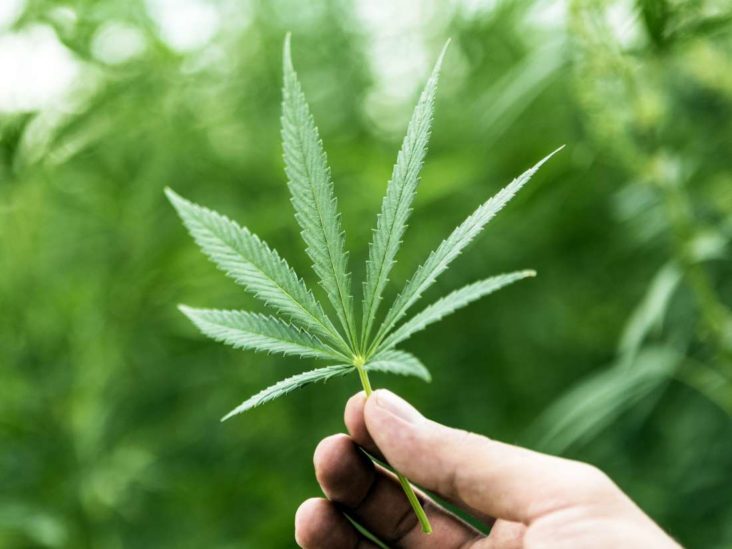
THC (tetrahydrocannabinol)
It is one of the dominant cannabinoids in the cannabis plant, in addition to being the psychoactive component. Also highlight its therapeutic possibilities in combination with CBD.
CBD (Cannabidiol)
Another of the main components of cannabis. Best known for its therapeutic and beneficial health effects. Among its properties stand out its palliative effects of chronic pain, the ability to strengthen the autoimmune system and to recover homeostasis in the body.
CBG (Cannabigerol)
This cannabinoid acts as the base for all other cannabinoids. CBG serves as a building block from which other cannabinoids such as THC and CBD are produced, through enzymatic processes. It also has many health benefits.
CBC (Cannabicromenol)
Like CBD, CBC does not bind CB1 receptors in the brain very well. However, CBC binds to other receptors that make it an effective pain reliever. It also has antibacterial and antifungal properties, as well as possible antidepressant effects.
THCV (Tetrahydrocannabivarin)
THCV is a first cousin to THC. Its chemical structure is almost identical. But their creation process is slightly different, affecting the same receivers in a different way. THCV is actually a CB1 and CB2 receptor antagonist. It is being studied for use as an appetite suppressant.
CBGV (Cannabigerivarin)
It is a component of the cannabis genome. It is classified as cannabinoid acid, and it also has anticonvulsant effects. It is another cannabinoid that is the subject of clinical studies in the development of drugs for people with epilepsy.
Cannabinoids: Cannabidiol
CBD perception is changing. It started out as a little-known cannabinoid, rejected by the cannabis community. It is now considered an innovative nutritional component, which could benefit everyone. Knowledge of the uses and applications of CBD is built as more and more people seek to take advantage of its effects.
CBD has become a highly demanded compound in recent years. In the US it has taken the natural products industry by storm, after receiving the impulse to legalize its use in some states. All this supported by very positive testimonials from users and the media. if you are look to buy cannabis, maijuana and weed there are many store avilable with cannabis, and weed for sale, you easily get from any online or your nearby store.
Weed: the documentary that started it all
CBD first caught the public's attention in a 2013 CNN documentary called Weed. The documentary, devised by Dr. Sanjay Gupta, told the story of little Charlotte, a Colorado girl suffering from Dravet syndrome, a strange form of epilepsy. At five years old, Charlotte already had about 300 seizures a week, putting her life in serious danger.
Desperate, Charlotte's parents searched cannabis for their last options. Getting medical marijuana for their daughter became an adventure for them.
Highlights from the WHO CBD report
Not addictive: "CBD does not show effects indicative of abuse or dependency potential."
It is an effective treatment: “CBD has been shown as an effective treatment for epilepsy in several clinical trials. There is also preliminary evidence that CBD may be a useful treatment for other medical conditions. "
It's safe: “CBD is generally well tolerated. It has a good security profile. Although adverse effects may appear, as a result of interactions between CBD and medications previously administered to patients. "
It is not psychoactive: "In both humans and animals, CBD has been shown to have very different effects than THC."
In fact, CBD can mitigate THC poisoning, if you choose to take a CBD extract with high THC. "Studies have shown that CBD can reduce or antagonize some of the effects of THC."
CBD is non-toxic.
CBD is considered safe and non-toxic to humans and mammalian animals, even in large quantities. You can find more information in the research document titled “Safety and side effects of cannabidiol”.
The research originated in the Department of Clinical, Toxicological and Food Sciences Analysis of the University of São Paulo, Brazil. The research, "High doses of up to 1,500 mg / day of CBD are well tolerated in humans."
CBD is not psychoactive
While marijuana is specifically engineered to contain tetrahydrocannabinol (THC), hemp naturally contains low levels of THC.
In fact, for cannabis to be considered hemp, it must not contain more than 0.3% THC. Instead, hemp produces significant levels of cannabidiol (CBD).
THC is specifically adapted to the CB1 receptor to generate its psychoactive effects. CBD, on the other hand, interacts with endocannabinoid receptors indirectly and is not psychoactive.
CBD has no side effects
The side effects that are possible with CBD are minimal and are often easily relieved.
thanks for reading
Post new comment
Please Register or Login to post new comment.